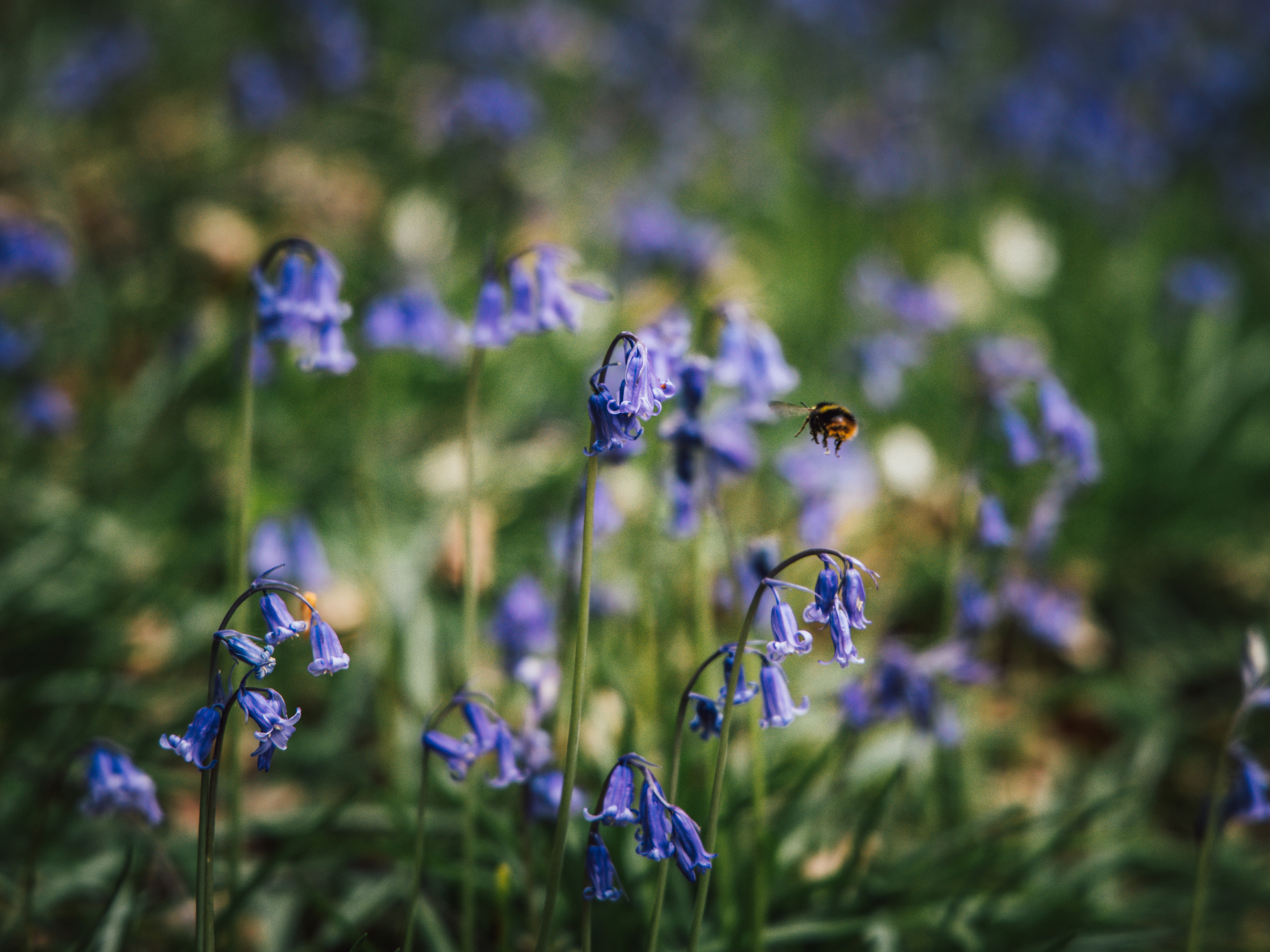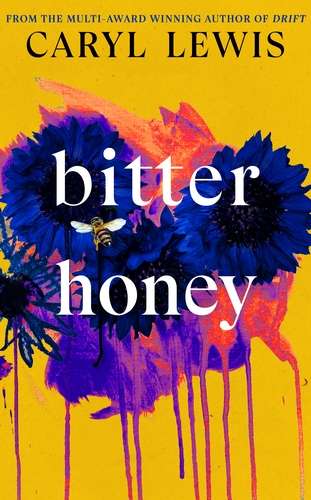

Like a bird, we are flying over the patchwork green of the Welsh countryside, its dipping valleys of farmland ribbed with hedgerows and crumbling stone walls. We spot an orchard, threaded with rows upon rows of trees and studded with apples, before a break in the foliage: a clearing of beehives, emanating the buzz of bees. We hover, circling the land, noticing a caravan not far from a traditional Welsh cottage, nestled into the surrounding fields. Our circular flight narrows, lowers, and we land on the flagstone doorstep of Berllan-Deg.
This is the setting of Bitter Honey by Caryl Lewis.
Minimal. Beautifully simple. Isolated from the rest of the world, and existing as if out of time, when letters were the principle means of communication. When life seemed to distil into prolonged thoughts and moments of clarity, as clear as the pure cold water of a trickling stream.
Bitter Honey is a slow burner of a novel, the majority of which takes place within the walls of Berllan-Deg. Our cast of characters move from room to room, deep in thought, remembering the past, while trying to make sense of the present. The memories interspersed throughout the novel lead to it reading like a montage of a life, of Hannah’s life, who we meet on the eve of her husband’s funeral, as he lies in the parlour.
Having grown up in the very same cottage, Hannah fell in love with John and, despite her parents’ disapproval, the couple married and John moved in. After the passing of Hannah’s parents, the couple went on to call the cottage their own and, despite being shadowed by ghosts of the past, they live happily right up to John’s final day.
Bitter Honey is undeniably a story about grief: the raw and tender first days and weeks in the absence of a loved one. Lewis delicately tends to Hannah’s hurt, writing about a grief that is very human and not always audible, but felt, as we are made to feel the weighty presence of Hannah’s emotion in the scenes when she is wordless, silent, under the cloak of grief.
Bitter Honey is also a story about ageing: the winter years of life. Hannah’s husband pens her eleven letters in the days before his death, revealing a significant secret from his past while reflecting on their married life and the nature of timepassing.
‘The strangest thing is that time itself has changed for me. The stories of all my yesterdays now show through my threadbare todays and, as we both know, I cannot possibly have many tomorrows. Perhaps I should be grateful – the only privilege, it seems, of teetering on the edge is feeling for the first time free from time.’
The writing is lyrical, poetic, but often too on the nose. It seems to me as if Lewis doesn’t fully trust her readers to make the connections themselves: she draws the lines from dot to dot for them, pointing out the obvious. Look – the beehive is a metaphor for the cottage and John’s sleepless nights letter writing are symbolic of bees at the end of life, gathering into a final cluster;
‘The bees do not sleep, not like other creatures which hibernate – they merely begin to live more slowly, gathering closer when the coldest weather strikes’
‘My cluster is final, Hannah; I do not think that a new spring awaits me’
Despite the heavy themes, I would have devoured Bitter Honey as a teenager: a warm weekend read of 240 pages out in the garden or on a picnic blanket in a grassy park. As the novel alternates between short chapters of prose and letters, the epistolary interludes make it very morish, tempting you to read just one more chapter and be enveloped by the inner emotional lives of the characters, their communication issues and complicated family dynamics.
By setting the novel in Wales and writing about a Welsh family, Lewis foregrounds Welsh language and culture, highlighting its importance for the next generation, especially in John’s letters when he discusses his work in the development of Welsh dictionaries:
‘It felt good to conserve the Welsh language, to hold on to something that sometimes feels as if it is slipping away. To feel its beauty and record it, to know that language comes from landscape, to find different words rooted just twenty miles apart. To see the world through letters.’
Bitter Honey opens up a world to its readers through letters – in both meanings of the word.
I can only hope that this novel is comforting for those who are Welsh and a warm welcome to Wales to those who are not. By inviting us into the cottage of Berllan-Deg, Lewis gives us entry to the intimate emotional lives of her characters, exposing the turbulence of love and grief – essentially what it means to be human.
Imogen Davies is a writer and creative from Aberystwyth, currently undertaking a masters in Modernist Literature at the University of Edinburgh. Named as one of sixty New Welsh Poets To Watch by Poetry Wales, her first collection, DISTANCES appeared in 2024.